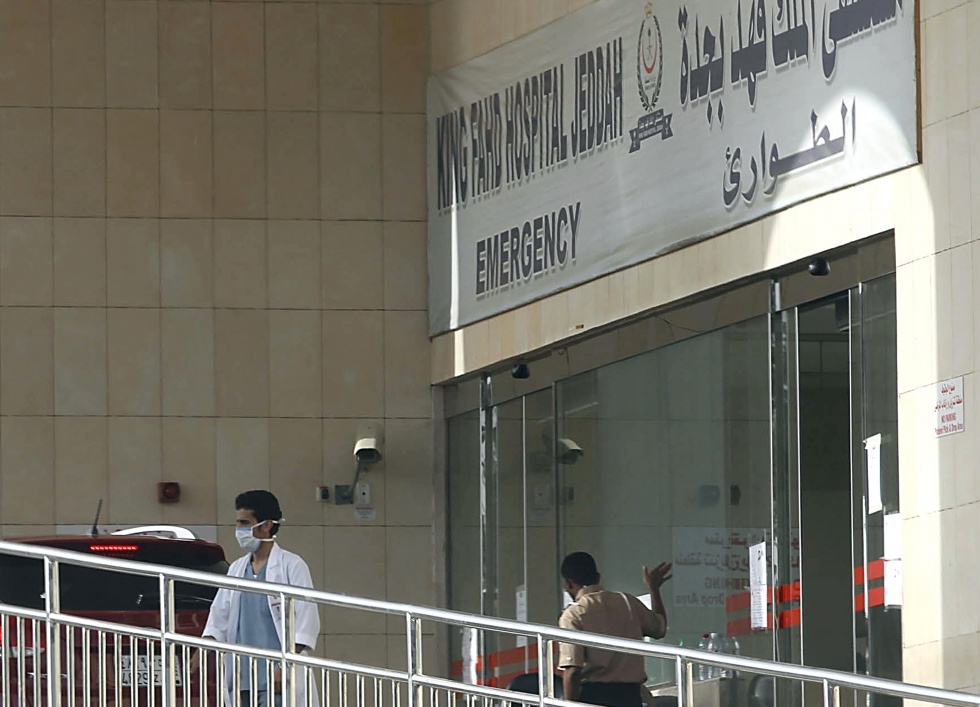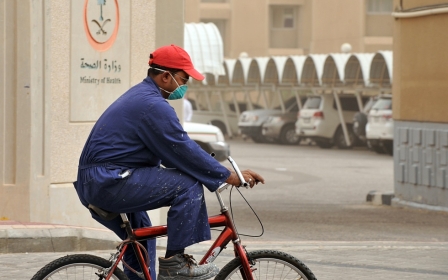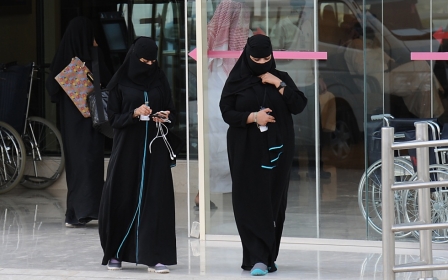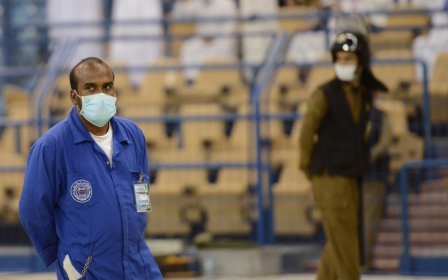Jeddah hospital head sacked as MERS death toll hits 117

Saudi Arabia's acting health minister Adel Fakieh has announced the sacking of the head of a Jeddah hospital where a spike in MERS infections among medical staff sparked public panic last month, as authorities announce two more deaths due to the coronavirus on Wednesday.
Fakieh dismissed the head of the King Fahd Hospital after inspecting the emergency room there, he wrote on Twitter late Tuesday. The hospital was temporarily shut last month after several medics caught the virus and four doctors were forced to resign after refusing to treat MERS patients for fear of infection.
Labour Minister Fakieh took over the health brief last month on a temporary basis, after Riyadh sacked Abdullah al-Rabiah for unspecified reasons, and he said a new team of physicians have been appointed at the hospital.
"The new team will immediately take up its duties," he tweeted, adding that "the ministry will take all decisive measures to achieve its goals in preserving the health of members of society."
Meanwhile health officials announced two more deaths due to MERS on Wednesday, bringing the death toll to 117 so far. The victims were a 68-year-old woman in Jeddah and a 60-year-old man in Medina.
New MEE newsletter: Jerusalem Dispatch
Sign up to get the latest insights and analysis on Israel-Palestine, alongside Turkey Unpacked and other MEE newsletters
Saudi Arabia has reported 431 infections since MERS first appeared in its eastern region in September 2012 before spreading across the kingdom.
Health Minister Fakieh has responded to the growing death toll by announcing an awareness campaign to help stop further spread of the disease. People are being urged to follow strict hygiene measures, avoid sick camels and refrain from eating raw camel meat or drinking unboiled camel milk.
Further measures to combat the virus are expected to be announced shortly, as Western expats and representatives of the World Health Organisation (WHO) conclude a trip to Riyadh.
The WHO said on Wednesday that a team of its experts had completed a five-day mission to assess the increase in infections, concluding that in two main hospitals cases had occurred because of “breaches in WHO’s recommended infection prevention and control measures”.
At the same time, it said the recent increase in numbers of infections does not suggest a "significant change in the transmissibility of the virus." Nor is there any evidence "of sustained human-to-human transmission in the community and the transmission pattern overall remained unchanged."
"The majority of human-to-human infections occurred in health care facilities," it said, adding that "one quarter of all cases have been health care workers."
The team called for improving "knowledge and attitudes" of health care workers about MERS.
MERS is considered a deadlier but less-transmissible cousin of the SARS virus that erupted in Asia in 2003 and infected 8,273 people, nine percent of whom died.
There are no vaccines or antiviral treatments for MERS, a disease with a mortality rate of more than 40 percent that experts are still struggling to understand.
Middle East Eye delivers independent and unrivalled coverage and analysis of the Middle East, North Africa and beyond. To learn more about republishing this content and the associated fees, please fill out this form. More about MEE can be found here.




